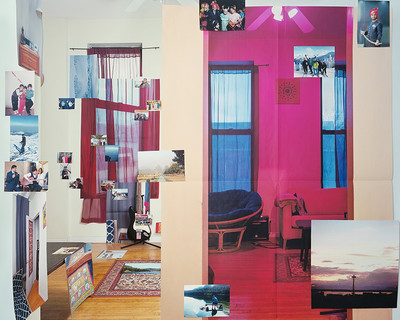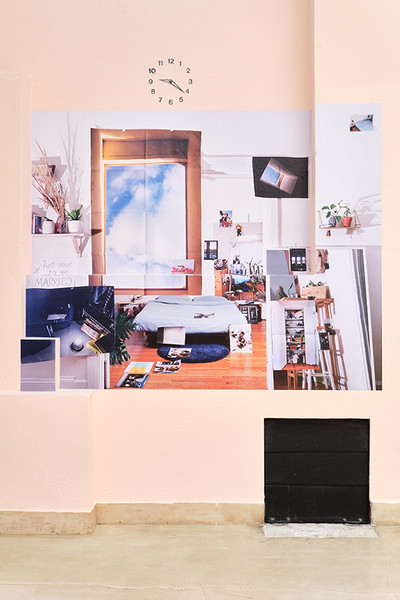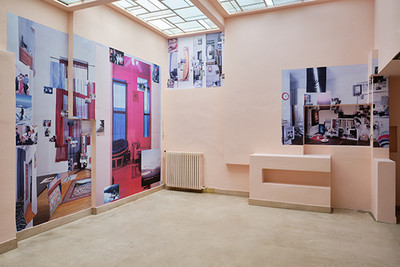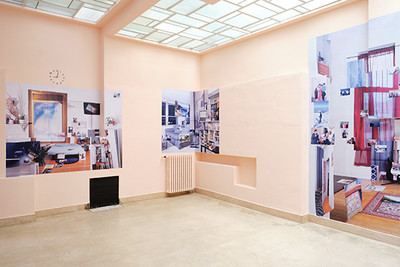Guanyu Xu
Prizewinner of the Grand Prix of the Photography Jury 2020
For many immigrants, the home could never be private and secure. In my ongoing project Resident Aliens, I
find participants who hold different immigration statuses in the United States. Upon invitation, I photograph their homes and personal belongings, and then print these images out in ad- dition to my subjects’ personal photo archives. These prints are installed back into their space as temporary installations and additionally docu- mented as photographs.
My performative actions with participants are not only an integral social practice in representing their complex identities and histories, but it’s also
a negotiation of power and assumed stereotypes. As a “foreigner,” entering their “territory,” I transform their temporary states of being into installations and preserve the constructions as photographs. The project presents immigrants’ intimately nuanced experiences within their homes and in the
US at large. These convergences of spaces and times invite the viewer to enter into spaces of fluidity rather than fixed perspectives. They mobilize the viewer’s gaze, imagination, and care, defying strict definitions.
The project is situated between photography, installation, and performance, which constructs layered images of identity, personal history, and the built envi- ronment.
It is from my own experience and the accumulation of similar stories from my friends that drove me to start “Resident Aliens”. The creation and the use of fear psychologically control us. A resident alien, who is required to pay the same tax as a citizen, may not only need to struggle for assimilation in the public space, but also cannot see the home as a safe haven. We are not citizens, and our homes are temporary. Under the systematic oppression, to a certain degree, staying at home could be a house arrest: we either leave to strug- gle for assimilation or stay in worrying about the shift of immigration
policy and foreign relations. For many immigrants, the home could never be private and secure. This perpetually contradictory and temporary state is why I want to photograph people in their homes. Under Trump’s shifting immigration policies, many people were in a constant state of uncertainty. These constructions of state power perpetually classify immigrants as potential subjects of criminality. The pandemic even adds more difficulties to many people I photographed. Through collaboration and conversa- tion, “Resident Aliens” presents the complicated conditions immigrants experience in the U.S. I want to ask: In this interconnected world, how do we redefine citizenship and the legality of a person?
Guanyu Xu (b.1993 Beijing) is an artist currently based in Chicago and a lecturer at the University of Illinois at Urbana- Champaign. Influenced by the production of ideology in American visual culture and a conservative familial upbringing in China, Xu’s practice extends from examining the production of power in photography to the question of personal freedom and its relationship to political regimes. He negotiates this from the perspective as a Chinese gay man. In his work, Xu migrates between mediums like photography, new media, and installation. These movements operate similarly to his displaced and fractured identity.




